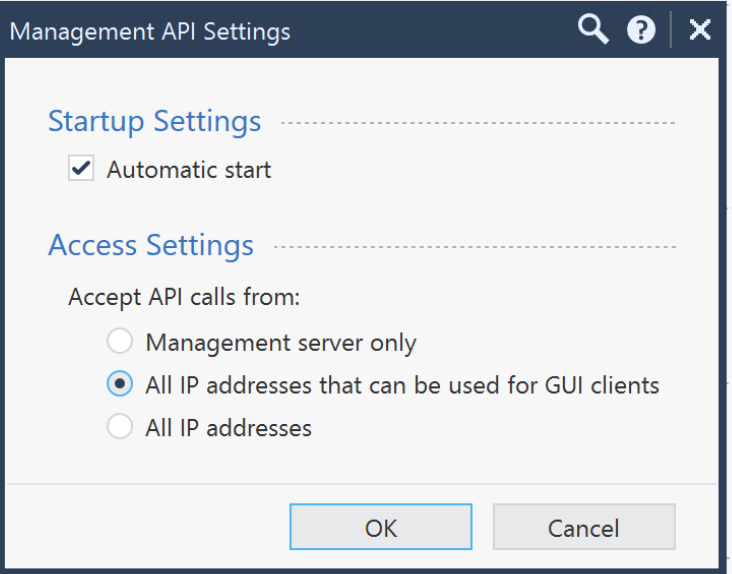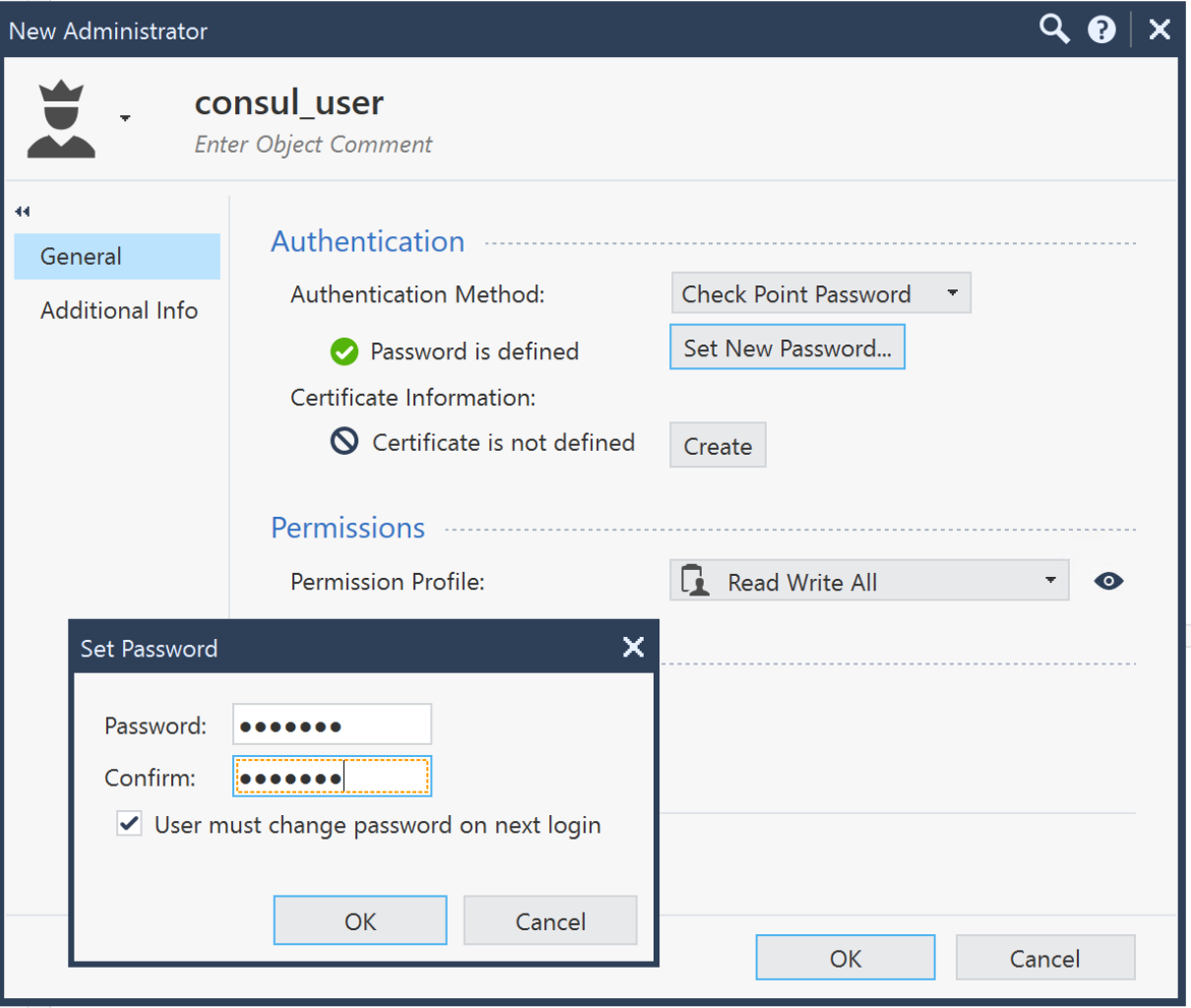Check Point Software Technologies Dynamic Objects module for Network Infrastructure Automation (NIA)
This Terraform module allows users to support Dynamic Firewalling by integrating Consul with Check Point Software Technologies Cloud and Network-based Security Gateway devices to dynamically manage registration/de-registration of Dynamic Objects based on services in Consul catalog.
Using this Terraform module in conjunction with consul-terraform-sync enables teams to reduce manual ticketing processes and automate Day-2 operations related to application scale up/down in a way that is both declarative and repeatable across the organization and multiple Check Point Firewalls. This integration will allow teams to quickly deploy applications while cutting down on security operation overhead which is also prone to human error. With predefined security policies in Check Point Gateways, this can also eliminate the lengthy change management process as service updates do not require a policy install.
Note: This Terraform module is designed to be used only with consul-terraform-sync
Feature
This module supports the following:
- Create, update and delete Dynamic Objects based on name and IP address for the service in Consul catalog. If the service address is not defined in Consul catalog, node address is used instead.
If there is a missing feature or a bug please follow this link to provide your feedback.
What is consul-terraform-sync?
The consul-terraform-sync runs as a daemon that enables a publisher-subscriber paradigm between Consul and Check Point Firewalls based devices to support Network Infrastructure Automation (NIA).
-
consul-terraform-sync subscribes to updates from the Consul catalog and executes one or more automation "tasks" with the appropriate value of service variables based on those updates. consul-terraform-sync leverages Terraform as the underlying automation tool and utilizes the Terraform provider ecosystem to drive relevant change to the network infrastructure.
-
Each task consists of a runbook automation written as a compatible Terraform module using resources and data sources for the underlying network infrastructure provider.
Please refer to this link for getting started with consul-terraform-sync
Requirements
| Name | Version |
|---|---|
| terraform | >= 0.13 |
| consul-terraform-sync | >= 0.1.0 |
| consul | >= 1.7 |
Providers
| Name | Version |
|---|---|
| checkpoint | >= 1.0.5 |
Compatibility
This module is meant for use with consul-terraform-sync >= 0.1.0 and Terraform >= 0.13 and Check Point >= R80.x
Usage
In order to use this module, you will need to install consul-terraform-sync, create a "task" with this Terraform module as a source within the task, and run consul-terraform-sync.
The users can subscribe to the services in the consul catalog and define the Terraform module which will be executed when there are any updates to the subscribed services using a "task".
~> Note: It is recommended to have the consul-terraform-sync config guide for reference.
- Download the consul-terraform-sync on a node which is highly available (preferably, a node running a consul client)
- Add consul-terraform-sync to the PATH on that node
- Check the installation
$ consul-terraform-sync --version
0.1.0
Compatible with Terraform ~>0.13.0
- Create a config file "tasks.hcl" for consul-terraform-sync. Please note that this just an example.
terraform
log_level = "info"
consul {
address = "192.168.0.1:8500"
}
buffer_period {
min = "5s"
max = "20s"
}
driver "terraform" {
log = true
required_providers {
checkpoint = {
source = "CheckPointSW/checkpoint"
}
}
}
provider "checkpoint" {
server = "192.168.0.5"
username = "consul_user"
password = "test123"
context = "web_api"
timeout = 60
}
<!-- task {
name = "sample"
description = "This task dynamically updates service addresses"
source = "../../"
providers = ["checkpoint"]
services = ["web_services", "api_services", "db_services"]
} -->
task {
name = <name of the task (has to be unique)> # eg. "Create_DynamicObjects_on_CheckPointFW"
description = <description of the task> # eg. "Check Point Dynamic Objects based on service definition"
source = "sample_dir/checkpoint"
providers = ["checkpoint"]
services = ["<list of consul services you want to subscribe to>"] # eg. ["web", "api"]
variable_files = ["<list of files that have user variables for this module (please input full path)>"] # eg. ["/sample_dir/checkpoint/sample.tfvars"]
}
- Start consul-terraform-sync
$ consul-terraform-sync -config-file=sample.hcl
consul-terraform-sync will create Dynamic Objects on Check Point devices based on the values in consul catalog.
consul-terraform-sync is now subscribed to the Consul catalog. Any updates to the services identified in the task will result in updating the address and Dynamic Objects on the Check Point devices
Installation Steps
1. Create API user for Consul and Enable API access
- From Check Point SmartConsole, navigate to Manage & Settings > Blades > Management API > Advanced Settings.
Note: For production deployments, make sure the consul-terraform-sync server is configured as a GUI client. For information on GUI Clients, please refer here.
- From Check Point SmartConsole, navigate to Manage & Settings > Permissions & Administrators > Trusted Clients > Right Click > New.
- Create API user, From Check Point SmartConsole > navigate to Manage & Settings > Permissions & Administrators > New User > Set username > Set password > Set Permission Profile - Read Write All
Note: For granular control of user profiles, please refer here.
- Install Database, From Check Point SmartConsole > drop-down menu from top left > Install Database
2. Setup Check Point Security Management Server (SMS)
- Transfer the following files to SMS consul directory (/usr/local/consul)
Files: consul-mgmt.sh and consul-gw.sh
Create the consul directory on SMS
mkdir -p /usr/local/consul/log /usr/local/consul/tmp
Update consul-mgmt.sh with credentials from previous step
#!/bin/bash
# v1 - HashiCorp Consul Integration
# This script is for Check Point Mgmt Station
# Check Point Mgmt Station credentials
vUSERNAME="consul_user"
vPASSWORD="test123"
- Run the consul-mgmt.sh to generate all the required files and setup cron
chmod 755 consul-mgmt.sh consul-gw.sh
sh consul-mgmt.sh
clish -s -c "add user consul_user uid 0 homedir /home/consul_user"
{ crontab -l -u consul_user; echo '*/2 * * * * /usr/local/consul/consul-mgmt.sh'; } | crontab -u consul_user -
crontab -u consul_user -l
- Modify the gateways file to include all participating gateways
Example
192.168.0.1
192.168.0.2
Note: consul-mgmt.sh will initialize each gateway with all required files
Initialized gateway example
192.168.0.1,init
192.168.0.2,init
- Configure and install security policy with Consul services
3. Configure consul-terraform-sync
- Donwload and transfer the following files to the server where you will be running consul-terraform-sync. Please refer to this link to download latest version of consul-terraform-sync.
Files: consul-terraform-sync (binary), main.tf, variables.tf, publish.sh, publish_linux or publish_osx
- Modify sample.hcl
Consul Server
consul {
address = "192.168.0.1:8500"
}
Tasks - Update Consul services you want to monitor
task {
name = "sample"
description = "This task dynamically updates service addresses"
source = <Module Path>
providers = ["checkpoint"]
services = ["web_services", "api_services", "db_services"]
}
Note: If you did not specify a -config-dir then you can use source = "../../"
Provider - Use Check Point credentials from previous steps
provider "checkpoint" {
server = "192.168.0.5"
username = "consul_user"
password = "test123"
context = "web_api"
timeout = 60
}
Note: You can also use api-key by replacing username/password
- Update publish.sh
Use Check Point credentials from previous steps
#!/bin/bash
export CHECKPOINT_SERVER="192.168.0.5"
export CHECKPOINT_USERNAME="consul_user"
export CHECKPOINT_PASSWORD="test123"
export CHECKPOINT_CONTEXT="web_api"
export CHECKPOINT_TIMEOUT=60
sleep 2
if [[ "$OSTYPE" == "linux-gnu"* ]]; then
publish_linux
elif [[ "$OSTYPE" == "darwin"* ]]; then
publish_osx
fi
Note: The Publish binary is for Linux 64bit and OSX. For all other platforms, please follow this link to complile the required platform.
- Start the consul-terraform-sync
chmod 755 consul-terraform-sync
./consul-terraform-sync --config-file sample.hcl
4. Troubleshooting
- Verify Consul services by running dynamic_objects command from each security gateway
command: dynamic_objects -l
[Expert@r8040gw:0]# dynamic_objects -l
object name : consul-api
range 0 : 172.31.13.27 172.31.13.27
range 1 : 172.31.29.206 172.31.29.206
range 2 : 172.31.94.1 172.31.94.1
object name : consul-redis
range 0 : 10.23.239.10 10.23.239.12
object name : consul-ssh
range 0 : 172.31.94.1 172.31.94.1
object name : consul-web
range 0 : 172.31.43.78 172.31.43.78
range 1 : 172.31.51.85 172.31.51.85
range 2 : 192.168.128.17 192.168.128.17
- Log directory on SMS and Security Gateway
- /usr/local/consul/logs




